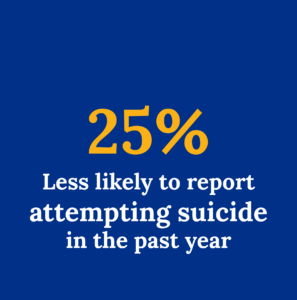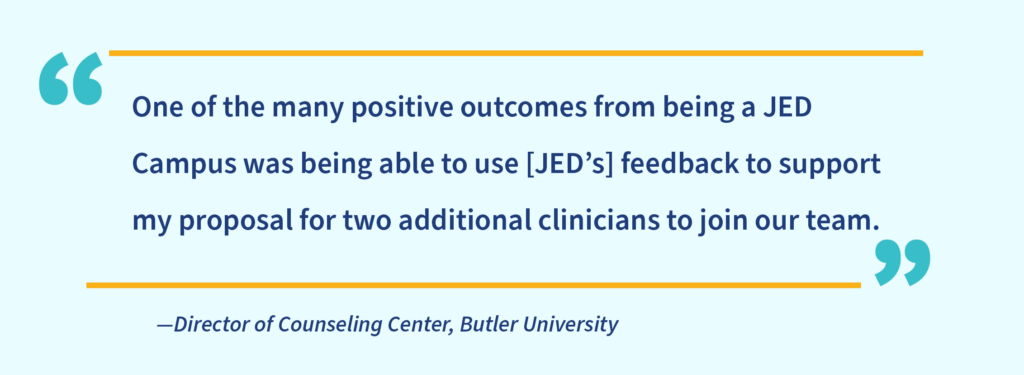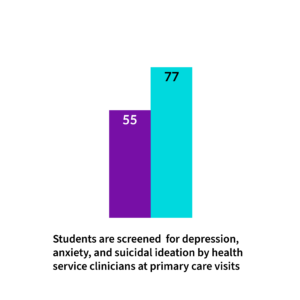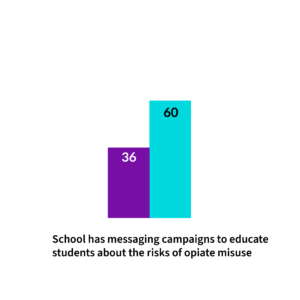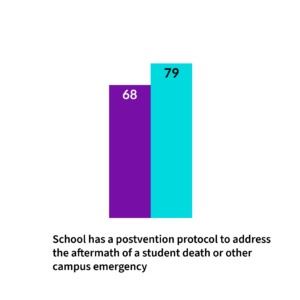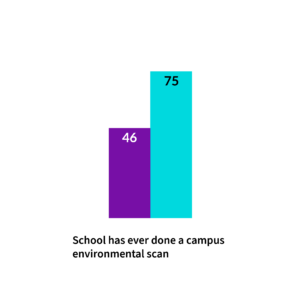Introduction
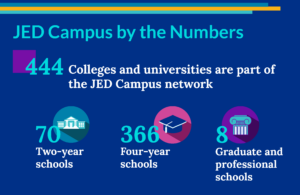 A Decade of Improving College Mental Health Systems: JED Campus Impact Report analyzes a decade of data (2013 to 2023) from JED Campus schools and the Healthy Minds Network survey. Among the findings, the report documents a significant decline in suicidal ideation, suicidal planning, and attempts among students attending colleges and universities who participated in the JED Campus program.
A Decade of Improving College Mental Health Systems: JED Campus Impact Report analyzes a decade of data (2013 to 2023) from JED Campus schools and the Healthy Minds Network survey. Among the findings, the report documents a significant decline in suicidal ideation, suicidal planning, and attempts among students attending colleges and universities who participated in the JED Campus program.
Launched in 2013, JED Campus is a four-year, technical assistance program that provides colleges and universities with expert support, evidence-based recommended practices, and data-driven guidance. To date, more than 440 colleges and universities have participated in JED Campus, reaching at least 5.6 million students.
In addition to student-level improvements, the results show school- and system-level gains, with even more progress at schools that implement an increasing number of JED’s recommendations.
Key Findings
Improvements to Student Mental Health
Schools that completed JED Campus saw statistically significant improvements in student mental health after completing the program compared to baseline.
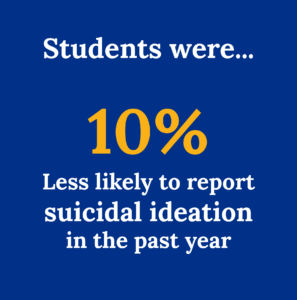
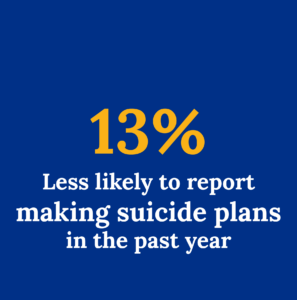
Students also had improved anxiety and depression average scores, and were more likely to stay in school and graduate.
Each school develops a strategic plan as part of its work with JED Campus. The strategic plan includes recommendations from JED’s Comprehensive Approach to Mental Health Promotion and Suicide Prevention for Colleges and Universities. Students at schools that implement an increasing number of recommendations are more likely to demonstrate:
- Decreased preconceived notions and biases about mental health treatment.
- Even lower rates of suicidal ideation, suicide planning, and suicide attempts than schools that had lower levels of progress.
- Even greater improvement in anxiety and depression average scores than schools that had lower levels of progress.
- Higher student flourishing scores than schools that had lower levels of progress.
System-Level Gains at Colleges and Universities
Schools also make statistically significant progress in system-level approaches after completing the program.
Pre/Post Data Points
Program/service aimed to address students’ mental health need
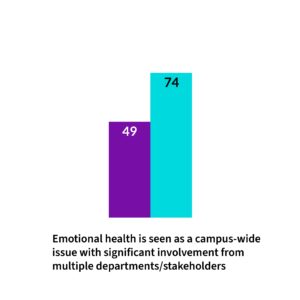
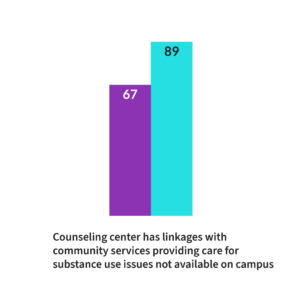
% of schools doing this
N =136 schools
Let’s Make Mental Health a Priority On Every Campus
More than 18 million people attend colleges and universities in the U.S. every year, putting academic institutions at the forefront of bringing mental health initiatives directly to young adults to help prevent suicide and lower the incidence of anxiety and depression.
According to the 2022-2023 Healthy Minds Study, 14% of college students nationwide reported suicidal ideation, 6% reported making a suicide plan, and 2% reported a suicide attempt in the past year. With that context, the report’s findings show that tens of thousands of students across JED Campus schools experienced mental health benefits.
Acknowledgments
We are deeply grateful for the collaboration and partnership of the more than 500 colleges and universities that are part of the JED Campus network. Their participation has not only benefited the students on their respective campuses, but also the JED Campus program at large and young people nationwide.
Our thanks to the JED team members who contributed to this work, particularly Diana Cusumano, Erica Riba, Nance Roy, and Tony Walker for their leadership of JED Campus and our campus advisors for their on-going commitment to our colleges and university partners:
- Jeni Beckman
- Liz Bracken
- Rachel Czerny
- Erlinda Delacruz
- Emilia George
- Eddy Gonzalez
- Michael King
- Kapi’olani Laronal
- Gustavo Molinar
- Nicole Rodriguez Mullis
- Shannon Rose
Thank you to the staff who contributed to the creation of this report, especially Kristelle Aisaka, Cameron Colgate, Niko Komrosky, Michelle Mullen, Kim Greene, and Whitney Becker.
We also thank the Healthy Minds Network, which created and administers the Healthy Minds Study, a population-level survey of post-secondary student mental health that is used in the JED Campus program. A special thank you to Dr. Daniel Eisenberg for his review of JED’s methodology and analyses.
For media inquiries or interview opportunities about the report, please contact Justin Barbo, director of public relations at JED, at justin@jedfoundation.org or media@jedfoundation.org.




